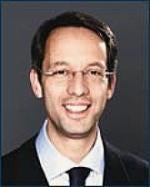In Tesla Motors Ltd v British Broadcasting Corporation [2011] EWHC 2760 (QB), the High Court of England and Wales has ordered that a claim for malicious falsehood against the BBC should be struck out unless Tesla Motors Ltd (Tesla) obtains permission to amend its claim for damages, which it had not particularised properly, as required in a claim for malicious falsehood.
BACKGROUND
The broadcast complained of related to the Top Gear presenter, Jeremy Clarkson, testing the Tesla Motors Ltd’s electric Roadster car in December 2008. To begin with, Mr Clarkson praised the car; however, later on in the broadcast, Mr Clarkson stated that the car ran out of power after just 55 miles, that it had overheated, and that the brakes had broken.
Tesla initially sued in libel, but changed the claim to one of malicious falsehood after the Court said that the words complained of were not capable of bearing the alleged defamatory meanings. As the programme had initially been broadcast on 14 December 2008, but proceedings had not been issued until 29 March 2011, the claim was limited to republications of the programme within the 12 months immediately preceding the commencement of the action, owing to the one year limitation period applicable to claims for malicious falsehood. In other words, the claim was limited to broadcasts after 29 March 2010, such as a broadcast on the freeview channel Dave.
Tesla’s Particulars of Claim did not contain a pleading of actual damage. Instead, Tesla relied on Section 3(1) of the Defamation Act 1952.
The BBC applied to strike out the claim on the basis that the allegation of damage as pleaded by Tesla was wholly inadequate. The BBC also argued a case of waiver, acquiescence or estoppel, arguing that, because of certain public statements made in respect of the broadcast by Tesla to the press, Tesla had lost any right to contend that the broadcast was actionable. The case should, the BBC submitted, therefore be decided summarily in the BBC’s favour.
DECISION
The Plea of Damage
Mr Justice Tugendhat ruled that the pleading was inadequate and ordered that the claim be struck out unless Tesla applied for and obtained permission to amend its Particulars of Claim:
In my judgment, if a trader, such as each of the Claimants in this case, makes a claim for malicious falsehood and, as he is entitled to do, he relies not on any actual damage, but on probable damage such as is referred to in the 1952 Act Section 3, the Claimant must nevertheless give particulars of the nature of the allegedly probable damage and the grounds relied on for saying that it is more likely than not.
Acquiescence, Waiver or Estoppel
On the BBC’s submission that Tesla had lost the right to complain as a result of public statements it had made that contradicted the claim, Tugendhat J said that it was not appropriate to decide the point summarily as it was “a point of general importance”. It was possible, he said, in a legal system that has no single publication rule, to envisage circumstances in which a claimant might be held to have lost any right to complain about publications that had occurred before he issued proceedings, but nevertheless not have lost the right to complain about, and seek to prevent, future publications.




 />i
/>i

